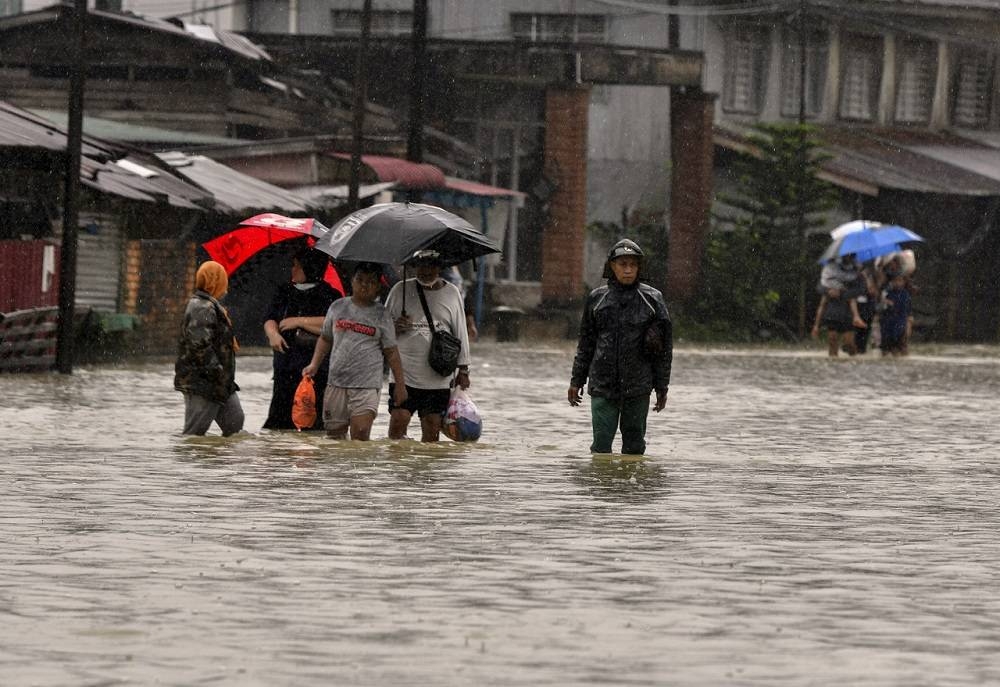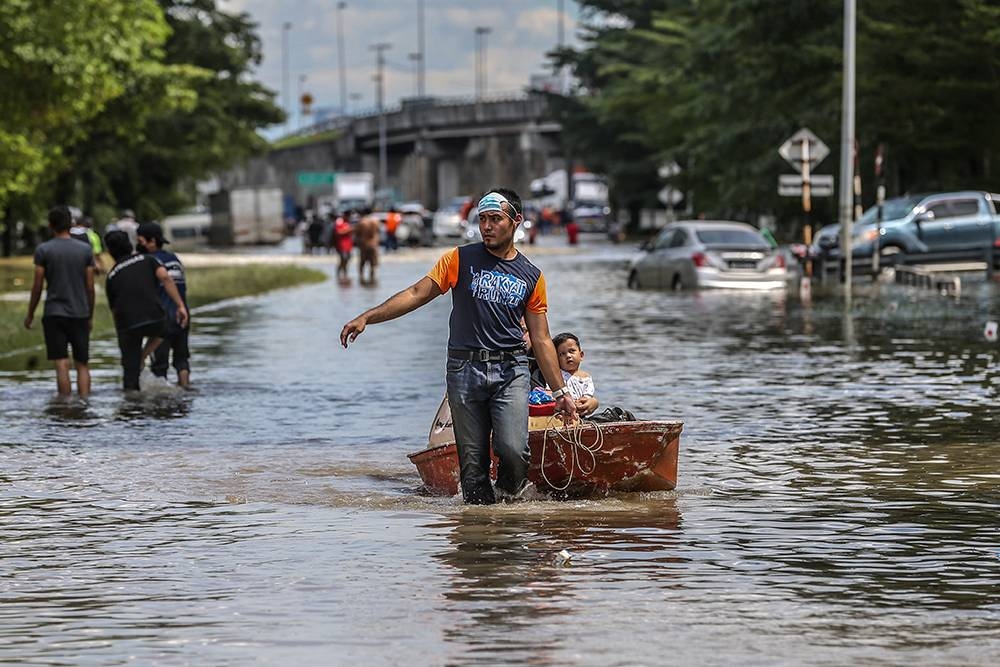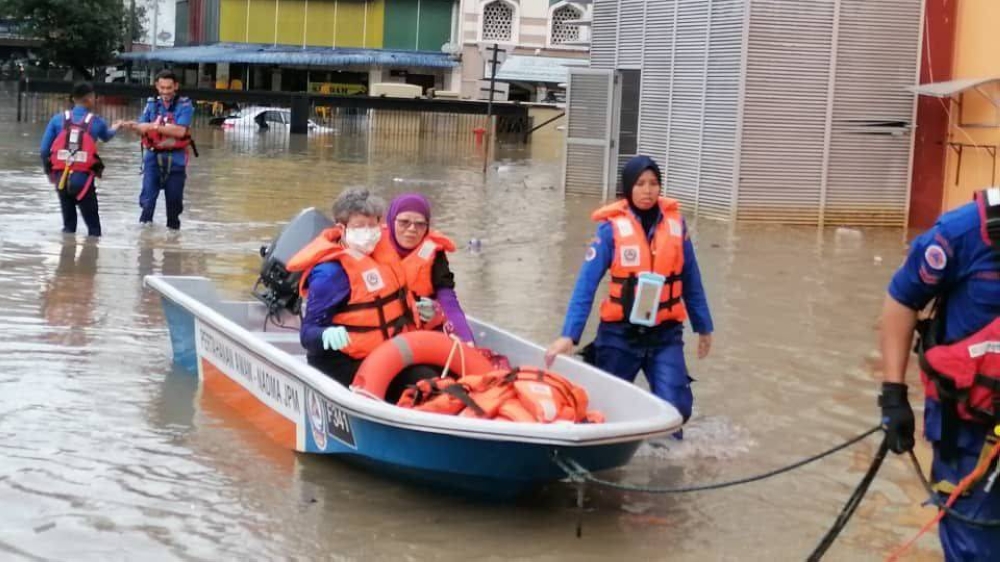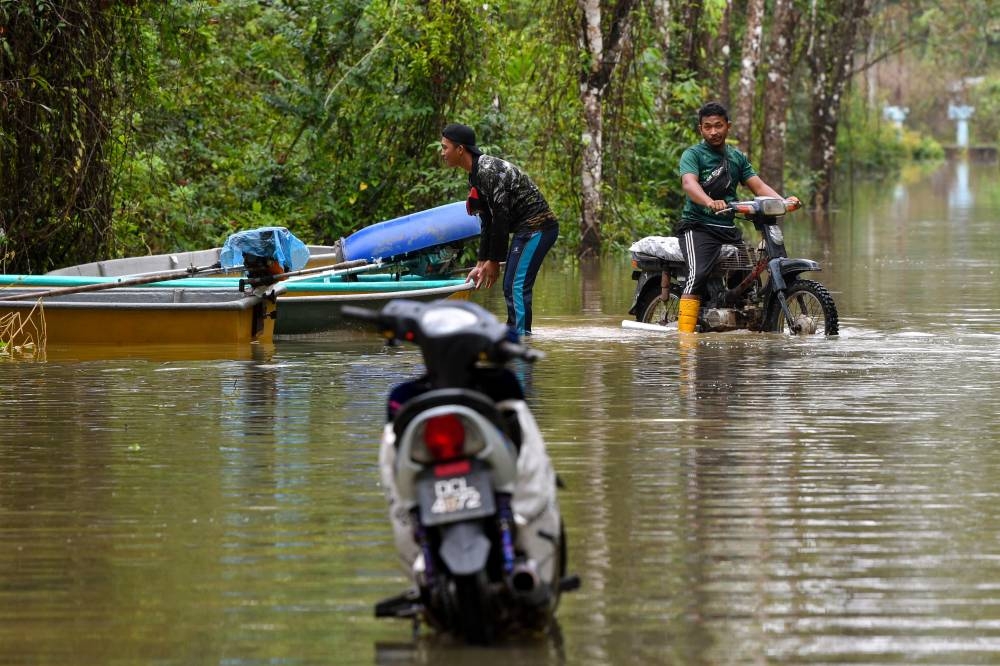KUALA LUMPUR, Dec 16 — The country has already entered the monsoon season, which will typically last until early February next year.
During this period, Malaysia is expected to experience heavy monsoon rainfalls that could trigger flash floods in various states
Apart from bringing huge inconveniences to the public, floods cause tremendous damage to unstable structures — especially in rural areas.
The financial damages, food insecurity and displacement due to the floods can take a serious toll on victims’ mental health.
To better understand the psychological effects of floods on their victims, Malay Mail asked experts to explain the mental health consequences of such disasters.
Long-term consequences
According to the Malaysian Mental Health Association president Datuk Dr Andrew Mohanraj, almost everyone who has suffered damage during the floods would have undergone some form of psychological distress.
According to reports, last year-end floods in Malaysia displaced an estimated 70,000 people and claimed over 50 lives.
“The severity would depend on their previous experience with disasters, particularly floods, their pre-existing psychological predisposition and degree of perceived loss particularly if it involved loss of lives.”
He said clinical depression and post-traumatic stress disorders (PTSD) are major mental issues that can arise from experiencing a catastrophe like the floods that we have witnessed recently.
“Those with pre-existing mental conditions like schizophrenia and obsessive-compulsive disorder are also likely to see their conditions worsening during the aftermath of the floods.
“Therefore, it is important to include psychological preparedness too in disaster management initiatives.”
Sharing similar sentiments, consultant psychiatrist from Pantai Hospital Cheras Assoc Prof Dr Azhar Salleh said the immediate physical consequences of floods are usually due to issues such as drowning, injuries, infections, physical hazards and disruption of health services.
“Financial losses and food shortages stemming from floods usually cause an immediate effect on people’s stress levels.”
Citing insights from past relief efforts in Malaysia, Dr Azhar said many of the effects tend to be short-term in nature once support from families, friends, non-governmental organisations and government agencies are made available.
“Although the frequency and severity of flood events in Malaysia have been increasing, floods cause relatively few deaths in Malaysia; with mental health problems estimated to account for a significant portion of morbidity.
“It is important to note that due to the widespread nature of flooding, the consequences can reach beyond the individuals involved as other family members can also be affected due to financial, housing and essential needs.”
Dr Azhar said displacement is a major factor giving rise to mental health problems, whereby those who have been compelled to move from their homes are more likely to be psychologically distressed than those who have not.
Furthermore, he said unsatisfactory housing or inadequate relief centres post-flooding may add to psychosocial stress and raise the risk of mental health disorders, as it has been shown that adequate housing is crucial for mental health.
“It is likely safe to assume that seasonal flooding can give rise to such problems because the underlying issues of being displaced remain present.
“Factors such as the length of time of the flood, inability to collect possessions, the depth of the flood and financial strain following the event, all contribute to the negative psychological impact.”

Putting children at risk
When it comes to flood disasters and their consequences, children are not spared from the long-term mental health risks.
Dr Andrew said children can be greatly affected by psychological distress due to the trauma of experiencing disasters such as floods, especially when it involves the death of a loved one, including their pets.
“Children may not verbalise their distress like adults, but they might display temper tantrums, school refusal or bed wetting.
“Therefore, appropriate psychosocial interventions for children become important during disasters such as floods to prevent the emergence of major psychiatric problems in them later in life.”
Speaking about children’s mental health during a disaster, Dr Azhar said children’s mental wellbeing tends to be directly related to the mental health of their adult carers or families, as well as the severity of the perceived threat from the disaster.
Referring to studies, he said there are higher rates of anxiety disorders such as depression, social phobia, separation anxiety and PTSD in children up to 18 months after a natural disaster.
Therefore, Dr Azhar noted that children may find it more difficult to be able to express their feelings clearly as compared to adults.
“Hence, children may show behaviour changes such as temper tantrums, separation anxiety, irritability, increased sensitivity to rejection and social withdrawal as indications of an underlying mental illness.
“School performance may deteriorate and they may find difficulty in focusing.”

Preparedness is key
As floods become an anticipated annual disaster, Dr Andrew said psychological preparedness becomes key in tackling mental issues arising from such devastating events.
“Psychological preparedness is a relatively new concept in disaster management as traditionally mitigation only focuses on reactionary mental health interventions like psychological first aid.
“What would be helpful is to blast information on emergency measures that will take place during the floods, so people can talk about it.”
Additionally, Dr Andrew said psychological preparedness should provide guidance on how to predict, identify and manage the victims’ feelings in the event of floods.
“Emphasis should be on coping skills to be exercised in the event of a disaster.
“Vulnerable groups need to be identified and mapped before the disaster in particular people with pre-existing psychiatric conditions so they do not relapse due to the trauma of the disaster.”
Dr Azhar, on the other hand, said the burden of psychological distress caused by flooding suggests that preventing such distress should be a major goal for reducing the adverse health effects of flooding.
“Support agencies need to be aware of the mental health effects of flooding on the population affected.
“People who are impacted require support for their psychosocial needs and resources to preserve their emotional health and need supporting agencies to acknowledge and address their distress by taking constructive steps to solve the underlying flood problems.”
Dr Azhar said psychological distress can be alleviated by improving flood risk awareness, flood protection and education on prevention.
“We also need to develop strategies to protect oneself from physical, material, and intangible damage.
“Additionally, access to flood insurance with simple procedures for claims and recovery as well as learning from previous experiences will help mitigate such disasters.”






















